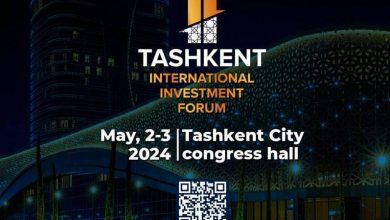Salesforce reps offended by language in Benioff’s V2MOM

Morale at Salesforce is low, despite the efforts of co-founder and CEO Marc Benioff. At the tech giant ohana means family, and family means no one is left behind — except for the several thousand employees the company laid off earlier this year as it faced severe economic headwinds.
On February 13, following the second round of layoffs in 2023, Benioff shared his annual forward-looking strategic planning document on a company-wide Slack channel. The document goes into the details of Benioff’s long-heralded management process, which he calls V2MOM, which stands for Vision, Values, Methods, Obstacles and Measures.
“What I like about the V2MOM is that it encourages creativity, change and empowerment,” Benioff wrote in 2020. “Different team members may lead different methods and they update the V2MOM throughout the year. We regard the V2MOM as a living and breathing document.”
Living and breathing might be apt descriptions for the Obstacles section of this year’s document—and some Salesforce reps might add “Angery.” What should explain the reasons for the company’s performance challenges instead led to outrage among some employees.
“A reduction in power could be a distraction for a productivity environment,” a section on the Obstacles page retrieved from Wealth, reads. “During the pandemic, wellness culture overwhelmed high-performance culture. Fear of escalating people issues (burnout, psychological safety, equality, etc.) can make managers reluctant to lead their teams in a performance-oriented manner.”
The document quickly received staff backlash Wall Street Journal reported Tuesday. One worker wrote on Slack that the line about wellness culture was “highly disturbing and deaf” and “a sad excuse,” according to the Diary. On February 20, Benioff sent out a revised document removing this line.
Salesforce and Benioff representatives did not immediately respond Assets Request for comments.
It’s not the first time Benioff has spoken, to the chagrin of workers, about the productivity shift he says has come with the pandemic. In December, he wrote on the #all-salesforce Slack channel, which then had 86,000 members, that employees hired during the pandemic in 2021 and 2022 “in particular faced much lower productivity.”
He went on to ask a few questions to solicit feedback: “Is that a reflection of our office policy? Don’t our managers raise productivity directly with their teams?” – as one employee related wealth was “extremely peculiar” because the company had ended its pandemic perk of one free Friday per month just weeks before.
“The quality of your business is the quality of your questions,” Benioff said in a statement wealth at that time. “Ask employees (and customers) tough questions to get answers is one of the most effective ways to get answers today. That’s why we bought Slack, because there’s no better way to quickly ask questions and collect answers. As of today, I have nearly 500 answers to my question—amazing and incredibly useful as Salesforce CEO.”
Definition of wellness, culture and high performance
It’s difficult to convey what “culture” looks like at a company as large as Salesforce, which has a market cap of $163.6 billion and employs over 70,000 people. But evidence suggests many employees aren’t happy.
Consider the troubles at Slack, which Salesforce acquired in 2021 for nearly $28 billion. The messaging app has long made clear its priorities of flexible working, mental health and work-life balance.
In an internal Q&A with Slack’s senior leadership team in January, outgoing CEO Stewart Butterfield discussed the cultural divide between the workplace messaging app and Salesforce, which it acquired in 2021.
Butterfield admitted, according to an audio recording of the meeting, that he was “not very successful” in integrating the two cultures wealth receive. “The problem was that there is no incorporation of the Slack culture into the Salesforce culture, and if there isn’t an element of that then it’s not an integration of any kind. It’s just the elimination.”
Research has shown that wellness culture and high-performance culture are not contradictory. Rather, the companies that have enjoyed sustained success during the pandemic have balanced business needs with employee health needs.
According to the latest Pulse survey from Slack’s Future Forum, workers with flexible work arrangements were 57% more likely than workers with full face-to-face presence to say their organizational culture had improved since adopting this flexible policy.
“Leaders say, ‘Because I was raised a certain way and had certain experiences with workplace culture, I don’t feel comfortable doing other things…in the future,'” said Brian Elliott, executive leader of the Future Forum wealth. “Leaders are concerned about preserving the flexible work culture, but our data tells a very different story.
“At the end of the day, it really comes down to trust — give employees the flexibility to work where and when they’re best,” Elliott continued. The survey also found that concerns like the Benioffs about falling productivity are unfounded. Compared to workers who are unable to change their work schedule, respondents with full work schedule flexibility reported 39% higher productivity and 64% higher ability to concentrate.
The most productive, focused employees are the ones who don’t feel overworked. 53% of workers dissatisfied with the flexibility of their organization reported burnout, compared to just 37% of satisfied workers.
“If you’re a leader worried about productivity, stop sweating how many days people are coming in and start sweating the meetings that are running amok in your organization,” Elliott said .
Learn how to navigate and build trust in your organization with The Trust Factor, a weekly newsletter exploring what leaders need to succeed. Login here.



